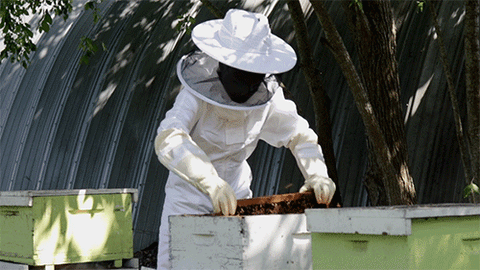More Bad Buzz about the Bees

I am often asked, how the bees are doing. Although I would love to tell everyone they are doing great....busy pollinating fruits and veggies ans sweetening my lemonade, that’s not the whole story. There is bad buzz about the bees and you should know about it.
Bee colony death continues to rise. According to the Bee Informed Partnership's latest June 2019 survey, U.S. beekeepers lost nearly 40% of their honeybee colonies last winter — the greatest reported winter hive loss since the partnership started its surveys 13 years ago. The total annual loss was slightly above average.*
Shrinking habitats, invasive mites, and now an insecticide that has become widely used in farming, are being blamed for the decline in bee populations. Neonicotinoids are a class of insecticides developed in the 1990s and are chemically related to nicotine. They are designed to attack the central nervous system of insects, which means even low doses of these chemicals may cause problems for bees.**
Researchers have also found that these neurotoxic pesticides may be impairing bees’ ability to navigate or make their way back to their hives. This is bad news for the bees and for our food supply.*** For years, beekeepers have warned that these pesticides are killing their hives.
Good news: Beekeepers concerns about this threat has recently translated into action in the US. The Environmental Protection Agency (EPA) has announced a ban on 12 neonicotinoid pesticides from three agro-chemical companies: Syngenta, Valent, and Bayer. Seven of these pesticides are used as a protective coating for crops like soybeans, cotton, and corn. But the battle between agrochemical companies and environmentalists isn't over. The 47 neonicotinoids allowed by the EPA must be re-registered by 2022, giving environmentalists a few more years to push for a total ban.*** This is definitely progress but so much more has to be done. In fact, The European Union has already banned almost all outdoor uses of neonicotinoids following a 2018 food safety report, which determined that the pesticide poses a risk to bees.
Click here to learn everyday ways to to save our pollinators.
Sources:
*https://beeinformed.org/results/2018-2019/ 2 **https://www.npr.org/sections/thesalt/2019/06/19/733761393/more-bad-buzz-for-bees-record-numbers-of-honey-bee-colonies-died-last-winter
***https://www.bloomberg.com/news/articles/2019-06-20/of-pollinators-and-pesticides
